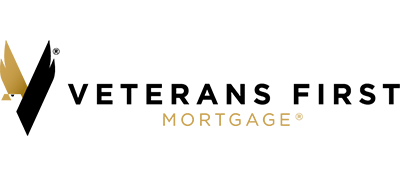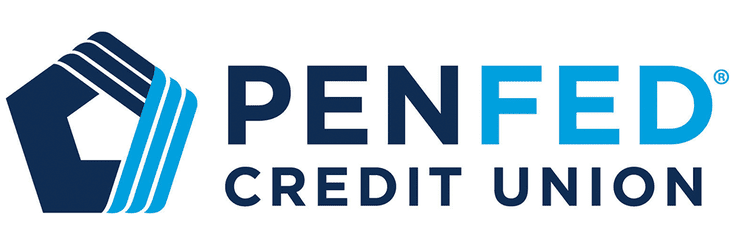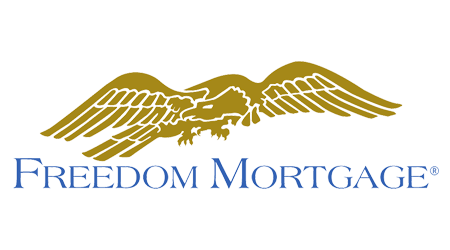Best VA Loan Lenders of 2025
Lashay Lewis | Feb 20, 2025
For military members, there can be multiple benefits that come with a VA loan, such as no need to make a down payment, and no private mortgage insurance payments (PMI) if your down payment is below 20%. However, lenders are free to add their own set of lending conditions (called "overlays") above the VA's minimums requirements.
These can include setting a minimum credit score or a maximum debt-to-income ratio (DTI) that is more restrictive in order to get their best VA loan rates.
We’ve reviewed a selection of some of the best VA loan lenders and highlighted some differences and features from each that may help you choose a VA mortgage lender for your situation.
Best VA Loan Lenders
| Lender | HSH Rating (?) | MIN CREDIT SCORE | DOWN PAYMENT | |
|---|---|---|---|---|
| Veterans United Home Loans | 620 | Financing for qualified veterans | Learn More | |
| Veterans First Mortgage | 620 | Financing for qualified veterans | Learn More | |
| PenFed Credit Union | 620 | Financing for qualified veterans | Learn More | |
| Freedom Mortgage | 620 | Financing for qualified veterans | Learn More | |
| Chase | 620 | Financing for qualified veterans | Learn More |

Pre-approval Time
same day pre-approvalMIN CREDIT SCORE
620DOWN PAYMENT
Financing for qualified veteransVeterans United Home Loans
Who is it good for?
For military borrowers who are looking for a low down payment and a variety of different mortgage options.
Pros
- Non-VA loan options available
- Free credit counseling to families
- Online application and prequalification
Cons
- No home equity loans, lines of credit or HELOCs offered
- Have physical locations in only 17 states
- Limited information available online about their mortgage options
Read Full Review

Pre-approval Time
same day pre-approvalMIN CREDIT SCORE
620DOWN PAYMENT
Financing for qualified veteransVeterans First Mortgage
Who is it good for?
Good for veterans and active-duty service members who are interested in a VA loan while also having options for USDA or FHA financing.
Pros
- Offers low or zero down payment options for military borrowers
- Can lend in all 50 states
- Can find out if you’re eligible within minutes
Cons
- Can’t see rates online
- No physical branches
- No conventional home loans, renovation or HELOC
Read Full Review

Pre-approval Time
same day pre-approvalMIN CREDIT SCORE
620DOWN PAYMENT
Financing for qualified veteransPenFed Credit Union
Who is it good for?
Homebuyers and homeowners who have good credit and are looking for competitive mortgage rates and a wide range of financial products and services.
Pros
- Can earn interest on checking accounts
- Soft credit check
- Joint and secure loan options are offered
Cons
- No direct payment to creditors
- Limited branches
- Can’t choose your payment date
Read Full Review

Pre-approval Time
same day pre-approvalMIN CREDIT SCORE
620DOWN PAYMENT
Financing for qualified veteransFreedom Mortgage
Who is it good for?
Borrowers who are looking for a range of different loan terms with the option of a low or no down payment.
Pros
- A variety of loan products
- Good refinancing options
- Rewards for members
Cons
- Rates are not available online
- Home equity loan and home equity lines of credit not offered
- Can’t apply without speaking with a loan officer
Read Full Review

Pre-approval Time
same day pre-approvalMIN CREDIT SCORE
620DOWN PAYMENT
Financing for qualified veteransChase
Who is it good for?
Borrowers who are looking for a lender with nationwide reach, a variety of products and services, and branch locations available.
Pros
- Guaranteed on-time closing or you receive $5,000, if you qualify.
- Nationwide coverage and iOS/Android mobile app.
- 3% down-payment loans available for qualified applicants.
- Current Chase Bank customers could eligible for additional products or discounts.
Cons
- Application is not entirely online. You’ll need to speak to a representative to complete the process.
- Currently not offering HELOC or home equity loans.
Read Full Review
What are the Requirements to Secure a VA Loan?
In order to be eligible for a VA loan you must meet one or more of the following minimum military service requirements:
-
You served 90 continuous days of active duty
-
You served 181 days of active service during peacetime
-
You served 6 years in the National Guard or Selected Reserve
-
You’re the surviving spouse of a service member who died in the line of duty or died due to a service-related disability
If you don’t meet these minimum service requirements you may still qualify if you were discharged due to a medical condition or a service-related disability. You may also still qualify if you served at least 20 months of a two-year enlistment.
If you’re still not sure if you are eligible, contact a VA lender directly.
What Is A Certificate of Eligibility?
Above we detail the minimum service requirements needed in order to qualify for a VA loan but lenders will also need a Certificate of Eligibility (COE) which confirms that you meet the minimum requirements to get a VA loan.
Often lenders can obtain your COE just by your date of birth and social security number. That being said, you can still begin the application process for a VA loan before you have your COE.
What Documents Do I Need?
To obtain your COE, you’ll need to provide documentation but the documentation that is needed depends on your current status.
-
Veterans - DD Form 214
-
Current or Former Activated National Guard - DD Form 214
-
Active Duty - Statement of service
-
Discharged National Guard - NGB Form 22 (Report of Separation and Record of Service) and NGB Form 23 (Retirement Points Accounting and proof of the character of service)
-
Discharged Reserves - Annual retirement points statement
For spouses to be able to utilize their VA home loan benefits, they’ll also need a COE to verify eligibility.
If a surviving spouse is receiving Dependency and Indemnity Compensation benefits they must complete the VA Form 26-1817. A copy of the Veteran’s separation paperwork is also required (i.e. DD Form 214).
If a surviving spouse is not receiving Dependency and Indemnity benefits, they’ll need to print and submit the VA form 21P-534EZ to their state’s VA Pension Management Center.
Click here for the pension management centers list.VA Loan Eligibility Requirements: Credit, Debt-To-Income, Property Type, and Loan Limits
In addition to having your COE, there are other requirements that need to be met in order to qualify for a VA loan.
Credit
Although the VA does not require a minimum credit score, each lender will have their own minimum standards for credit scores that they’ll allow. Some lenders may write VA loans for borrowers with FICO scores in the high 500s, but typically you'll need a credit score in the low-to-mid 600s to get a VA loan.
Debt-To-Income
The VA does not have a specific Debt-To-Income (DTI) ratio they use when determining borrower eligibility, the VA recommends that lenders use a maximum DTI ratio of 41 percent when they evaluate your ability to repay the loan. In some circumstances, it's possible to have a higher DTI and still obtain a VA loan.
Property Type
VA loans are available for single-family homes, approved condominium projects, manufactured homes on permanent foundations that meet other conditions and modular homes. VA loans are made to borrowers who certify that they personally intend to occupy the property, and homes that are financed by VA loans must have working heating and cooling systems, clean continuous water supply, sufficient roofing, and provide adequate living space.
VA Loan Limits
Loan limits for VA-backed mortgage loans are exactly the same as those for conforming conventional loans. These are set each year by the Federal Housing Finance Agency, and vary by area. In high-cost housing areas, jumbo loan amounts are available up to one-and-a-half times the normal conforming loan limit. You can see a map by county of the current year VA loan limits at the FHFA’s website.
Refinancing a VA Loan
If you already have a loan backed by the U.S. Department of Veterans Affairs, the VA has a streamline refinance home loan program for you called the Interest Rate Reduction Refinance Loan (or “IRRRL”), this unique-to-VA loan process simplifies qualifying: IRRRL requires no cash at closing, no review of your credit history if you are current on your existing VA loan over the past year, the property doesn’t need to be appraised and there’s no need to document your current income.
Simplified underwriting allows you to refinance an existing fixed-rate or adjustable-rate VA loan into a new fixed-rate VA loan. Closing costs and lender fees can be financed into the loan amount, but you will need to pay the VA funding fee. The VA also allows for a cash-out refinance, too, but not in a streamlined IRRRL process.